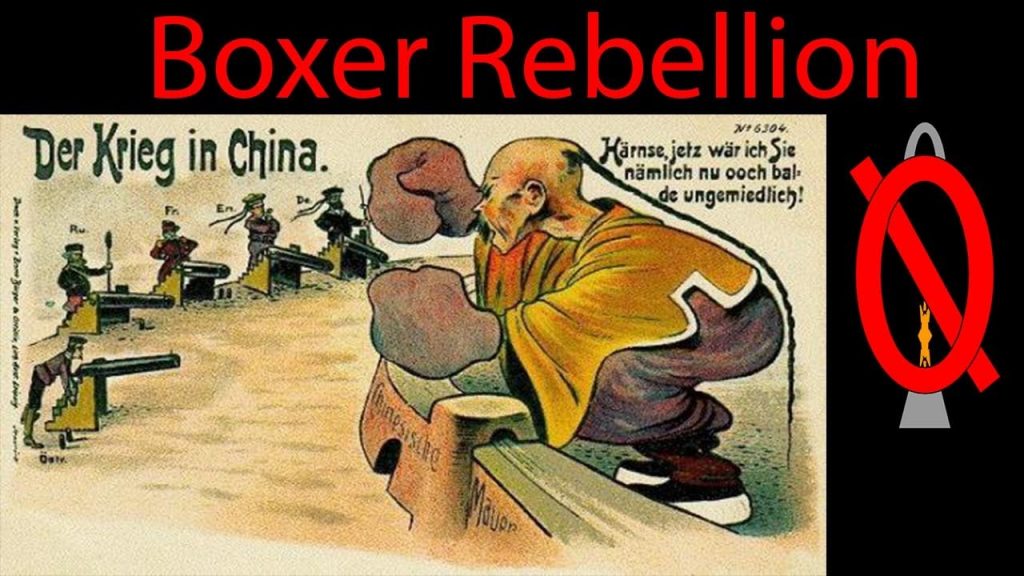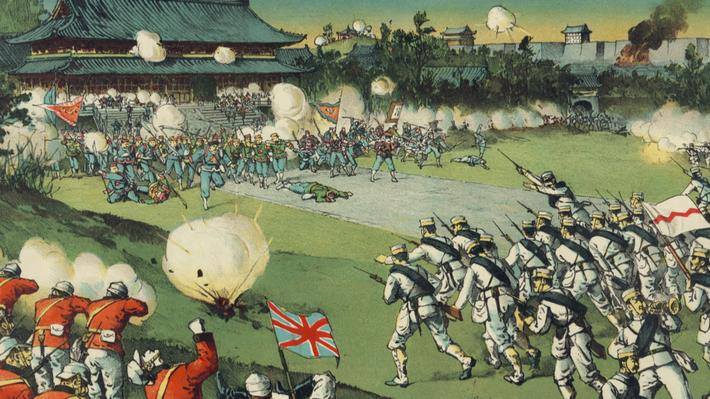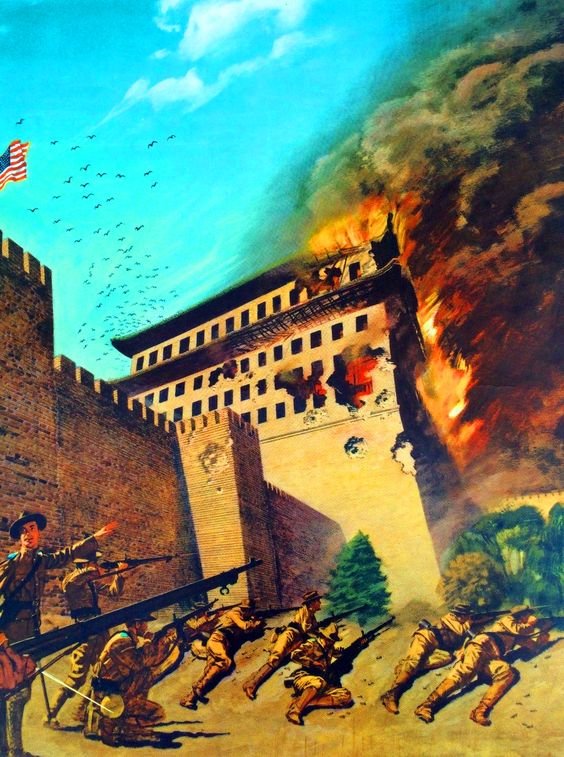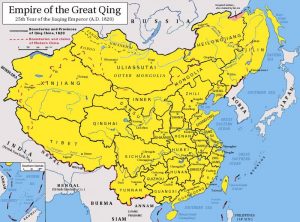Cixi & Qing China
Cixi is by any standard the most remarkable woman in the history of China; the Empress Wu was the only woman to rule China in her own name but little is concretely documented about the Tang dynasty Imperatrix; in contrast, Cixi’s rule has been extensively documented in biographies by Sterling Seagrave and Jung Chang among others.
Conversely, Cixi’s reputation in the twentieth century was based almost entirely on slanders by Sir Edmund Backhouse, ‘Wild Fox’ Kang Youwen and others; from the ‘revisionist’ biographies of Seagrave and Chang, an entirely different picture of the dowager empress emerges: a complex woman who made mistakes but who was committed to China and the Chinese (as well as the Manchu) people.
Born to an aristocratic Manchu family, the young Yehenara became a concubine to the Xianfeng emperor; when she gave birth to his only legitimate son and heir (the future Tongzhi emperor), she rose from the concubines’ harem to become mother of the young emperor. Cixi steered the Qing regime through the most tumultuous period of Chinese history, ruling China on and off for half a century; while there is much to criticize in her rule, there is even more to respect and even admire; given the dire circumstances she found herself in, Cixi did as well as any man from the Manchu ruling elite could have done. Far from the reactionary dragon lady depicted by the not very fabulous fabulist Sir Edmund Backhouse, she was a liberal reformer who was relatively progressive by the standards of her day.
Qing China: a timeline
1644: 4.24.1644: Manchus capture Beijing
1644: 6.6.1644: Shunzhi emperor declared the first emperor of the Qing dynasty
1661: 2.5.1661: Shunzhi succeeded by his third son the Kangxi emperor
1722: 2.8.1722: Kangxi emperor succeeded by his fourth son the Yongzheng emperor
1796: 2.7.1796: Qianlong emperor abdicates in favor of his son the Jiaqing emperor
1820: 2.2.1820: Jiaqing emperor succeeded by his second son the Daoguang emperor
1831: the Xianfeng emperor’s reign began
1835: 11.29.1835: birth of Yehenara
1839: 3.18.1839: First Opium War with Britain began
1842: 8.29.1842: Treaty of Nanjing is signed, ending the First Opium War and ceding Hong Kong to Britain.
1850: 1.11.1850: Taiping Rebellion begins, with rebels proclaiming the establishment of the Taiping Heavenly Kingdom
1851: Yehenara became concubine to the Xianfeng emperor
1856: 4.27.1856: birth of Yehenara’s son Zaichun — the future Tonghzhi emperor
1856: death of the empress dowager and primacy of rank of the Empress Nuihuru
1856:10.,1856: the Arrow incident
1858: 6.25.1858: the Treaty of Tianjin
1859: 6.25.1859: Dagu Forts set on fire by the British
1860: Xushun — leader of the Gang of 8 — named prime minister
1860: 9.21.1860: the British and French defeat the Chinese at Baliqiao
1860:9.22.1860: the Xianfeng emperor and the court fled to Jehol
1860: 10.7.1860: Summer Palace captured by British and French troops
1860: 10.18.1860: Summer Palace destroyed by British and French troops
1860: 10.18.1860: Second Opium War began with Britain
1860:10.19.1860: Prince Gong accepted the Beijing Convention imposed on China by Britain and France
1860: 10.24.1860: Anglo French forces captured Beijing
1861: 2.25.1861: Treaty of Beijing is signed, ending the Second Opium War and opening more Chinese ports to foreign trade
1861: 8.22.1861: death of the Xianfeng emperor after Cixi prompted him to declare Tongzhi his heir: Cixi saw Iushun sitting on the emperor’s throne and realized Xushun intended to take power, putting her in mortal danger; she brought Tongzhi from wet nurses to Xianfeng.
The Gang of 8 Announced that they would be the Council of Regents.
Xushun and four others improperly declared themselves Grand Councillors without an imperial edict.
1861: 8.23.1861: Niuhuru was declared CiAn and Yehenara declared Cixi at Jehol and given the imperial seals.
1861: 8.24.1861: Xushun declared Niuhuru empress dowager; opponents demanded that Xushun name Yehenara empress dowager; she demanded that he name them co-empress dowager.
Yehenara rushed to Niuhuru to warn her.
1861: 9.5.1861: Prince Gong, CiAn and Cixi visited Xianfeng in the funeral hall in Beijing. Gong enlisted CiAn and Cixi in a planned coup d’état.
1861: 9.18.1861: procession from Jehol
1861: 11.1.1861: CiAn & Cixi reached the Forbidden City and were met by Prince Gong
1861: 11.2.1861: CiAn & Cixi issued an imperial decree ordering the arrest of the Gang of Eight and declaring the regency edict. forgery; Prince Jun arrested Xushun.
1861: 11.3-5.1861: imperial decrees were issued against Xushun.
1861: 11.8.1861: the indictment of the Gang of Eight was published.
1864: 7.19.1864: the Taiping were defeated at Nanjing. Li Hongzhang was named an earl and viceroy of the Yangzi basin. (Li was made viceroy of Jili at 49 after Zheng’s death in March 1872)
1865: 4.2.1865: Wo Jen got an imperial edict issued dismissing Prince gong from all imperial offices and as prince advisor to the Tongzhi emperor.
1865: 4.4.1865: Prince Jun got a Clan Council to reverse the edict and Gong was restored but Jun was named prince adviser a month later.
1871: 8.14.1871: birth of the Guangxu emperor.
1875: 1.12.1875: death of the Tongzhi emperor from either smallpox or syphilis or murder. Prince Gong enlisted Cixi in a plot to put their nephew Tsai Tien as the Guangxu emperor.
1875: 1.14.1875: Empress A-lu-te’s pregnancy ws disclosed to Robert Hart by Viceroy Li as well as a failed suicide attempt.
1875: 2.12.1875: Treaty of Saint Petersburg is signed between Russia and China giving Russia control over Outer Mongolia
1875: 3.27.1875: A-lu-te’s death announced.
1875: 3.29.1875: Cixi reported ill with a liver ailment. Prince Gong and Li Hungjang had the strongest motive to eliminate Tongzhi, A-lu-te and Cixi.
1878: 6.11.188: Cian and Cixi issued an imperial edict about gossip concerning Guangxi. CiAn died of a viral flue; Cixi was 45 and Guano was 9.
1889: 3.4.1889: Guangxu was enthroned and Cixi retired from the regency at 54.
1891: Prince Jun’s death; Prince Jing was chosen to advise Guangxu but Li Hongzhang was the real power behind the throne.
1891: 3.5.1891: Guangxu had his first audience with foreign ministers at the age of 19.
1894: 7.25.1894: First Sino-Japanese War began as a Japanese squadron intercepted the Chinese SS Kowshing.
1894: 9.17.1894: Japan destroyed half of Li’s navy in the mouth of the Yalu River. Cixi cancelled her 60th birthday celebrations (10 million silver taels). Cixi stripped Li of honors but blocked his removal; Cixi recalled Prince Gong from retirement after tending chrysanthemums for 10 years.
1895: 3.19.1895: Li was shot and wounded at Shimoneseki.
1895: 4.17.1895: Treaty of Shimonoseki signed, ending the First Sino-Japanese War and ceding Taiwan and other territories to Japan.
1895: 10.7.1895: Sugimura Yotaro’s assassination of Queen Min shocked Cixi.
1896: Prince E.E. Ukhtomskii accompanied Li to St. Petersburg for celebrations of Nicholas II’s coronation; Count With bribed Li in a conspiracy to put a Russian-sponsored pretender on the throne.
1898: Jan. 1898: interview with the Zungli Yamen.
1898: May 1898: Prince Gong died. Guangxu invited memorials from the public and Ming Shih reformers responded with denunciations of the Grand Councillors. King Yuwei (‘Wild Fox’ King) was seen as a poseur by the mingxi.
1898: 6.11.1898: Gunagxu issued his first reform edict.
1898: 6.15.1898: Guangxi’s tutor Weng Dengue annoyed Guangxu who fired Weng from the Grand Council.
1898: 6.16.1898:the Wild Fox King Yuen’s only interview with Guangxu.
1898:.9.11.898: Li Hungjang invited Ito Hirobumi to Tianjin.
1898: 9.14.1898: Guangxu asked Yuan Shihkai for help.
1898: 9.18.1898: Guangxi’s second meeting with Yang Shihkai.
1898: 9.16.1898: Guangxu met with Cixi who told him about the Wild Fox Kang’s boasts.
1898: 9.17.1898: guangxu issued a decree ordering Kang to Shanghai.
898: 9.14.1898: Yuan Shikkai told Prince Jing and Li Hongjang of Guangxi’s secret plan to make Ito Hirofumi a special consultant.
1898: 9.18.1898: Prince Jing called a Clan Council and asked Cixi to resume her regency; Censory Yang appealed to her.
1898: 9.20.1898: Yuan Shihkai’s third audience with Guangxu before his audience with Ito Hirofumi.
1898: 9.19.1898: Cixi traveled incognito to witness behind a gauze screen Ito Hirofumi’s audience with Guangxu.
1898:9.21.1898: Yuan Shikai’s meeting with Cixi after which she decided to resume the regency.
898: 9.21.1898: Guangxi’s edict recognizing Cixi’s resumption of a regency prompted Wild Fox King to spread the rumor that Cixi had Guangxu imprisoned in Yingtai Pavilion.
1898: 9.23.1898: Cixi issued arrest warrants for reformers.
1898: 9.24.1898: Guangxu returned to work.

1900: 6.20.1900: Boxer Rebellion began with Boxers attacking foreign embassies in Beijing.
1901: 9.7.1901: the Boxer Protocol was signed, ending the Boxer Rebellion and imposing heavy reparations on China.

1908: 11.14.1908: the death of the Guangxu emperor, succeeded by Puyi.
1908: 11.15.1908: the death of Cixi at the age of 72.

1911: 10.10.1911: Wuchang Uprising begins, leading to the collapse of the Qing Dynasty and the establishment of the Republic of Ching
